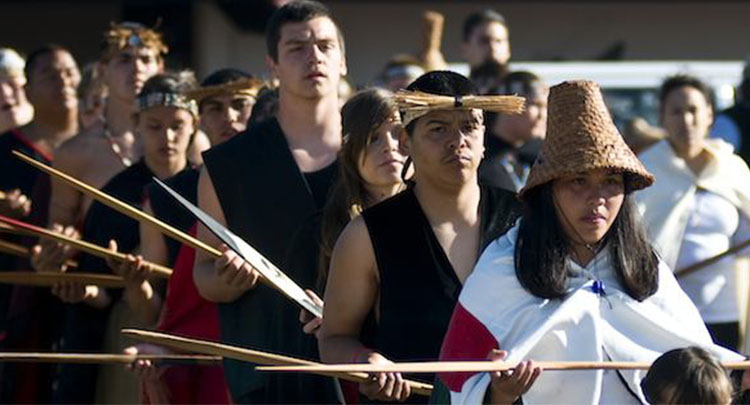Page 50 • (562 results in 0.059 seconds)
-

). Currently a Ph.D. student at Clemson University, Adamson will present his paper, “Politics, Resources, and War: A General Theory and 900 Years of Empirics from Ancient Rome,” which asks and helps answer the question, “How do political institutions shape the incentives to go to war?”‘ Among the most convoluted of the social sciences, PLU Professor of Economics Norris Peterson explains, Economics is founded in inquiry, research and critical thinking. “Economics develops skills in taking very complex
-

New Delete Anthropology Academic Programs all programs program website Anthropology Undergraduate Minor College of Liberal Studies Bachelor of Arts About Anthropology is so much more than stones and old bones — especially at PLU. Here you’ll also examine the politics, medicine, kinship, art and religion of various peoples and times to develop your understanding of the nature and variety of all humanity. Anthropology tries to bring the world’s people into human focus through observation of people
-

-person classes will be offered in late afternoons and evenings. Clinically-oriented. The program prepares students for careers in a variety of settings related to physical and behavioral health in clinical social work, healthcare, schools, community organizations, policy development, and administration. The curriculum includes at least 900 hours of practicum work. Global focus. The program includes a comparative global focus on health and behavioral health, with the opportunity to include a January
-
Northwest, presidential politics, the quest for peace, poverty, and stem-cell research. The value of your college education actually increases when you have a better understanding of religion’s influence in American and global life. In a nation marked by great religious diversity and where most people claim a religious tradition, it becomes increasingly necessary to understand something of America’s religious landscape if you want to understand co-workers, friends, neighbors – even spouses or partners
-

only so much I can do and it’s OK to try new things every year while still pursuing what I’m most passionate about, which is writing, journalism, politics and social justice. Often to relax, I usually watch YouTube, Netflix (favorite TV shows: “The Office,” “New Girl,” “Stranger Things” and “The Fresh Prince of Bel-Air”), nap, or video chat my best friends who are all spread across different colleges. My favorite YouTuber is Lilly Singh. She’s kind, positive and been a great strong female Indian
-

offered annually. Mexico is a consistently popular destination. Williams notes that both PLU’s Hispanic Studies program and current issues could be fueling that trend. Interest in peace and conflict studies in Oslo, Norway, is also on an upswing. One of the highlights of that program: students get press passes to a briefing for the Nobel Peace Prize ceremony. Steves says politics and global issues have changed how he approaches his travel career. Study Away ProgramsGet the biggest bang for your buck
-
in many things, there’s only so much I can do and it’s OK to try new things every year while still pursuing what I’m most passionate about, which is writing, journalism, politics and social justice. Often to relax, I usually watch YouTube, Netflix (favorite TV shows: “The Office,” “New Girl,” “Stranger Things” and “The Fresh Prince of Bel-Air”), nap, or video chat my best friends who are all spread across different colleges. My favorite YouTuber is Lilly Singh. She’s kind, positive and been a
-
Tobago, Norway, England and China are offered annually. Mexico is a consistently popular destination. Williams notes that both PLU’s Hispanic Studies program and current issues could be fueling that trend. Interest in peace and conflict studies in Oslo, Norway, is also on an upswing. One of the highlights of that program: students get press passes to a briefing for the Nobel Peace Prize ceremony. Steves says politics and global issues have changed how he approaches his travel career. Study Away
-
University College at Western University in London, Ontario (Canada), and the author most recently of Soldier of Christ: The Life of Pope Pius XII (Harvard University Press, 2013), which was awarded the American Catholic Historical Association’s 2014 Koenig Prize for Catholic biography. He is also the author of From Fascism to Democracy: Culture and Politics in the Italian Election of 1948 (Toronto, 2004), which received an honorable mention for the Canadian Historical Association’s Wallace K. Ferguson
-
O’Leary started the original Dead Feminists series they’ve been entrenched in the feminist community, in which they’ve found an active and passionate audience that has helped give the series a life of its own. “When we began the series, we hoped to make a contribution for the record–to actively engage with politics, rather than simply consuming the news or discussing current events,” Spring says. “By creating our broadsides (prints) and donating a portion of our proceeds, we became active participants
Do you have any feedback for us? If so, feel free to use our Feedback Form.


